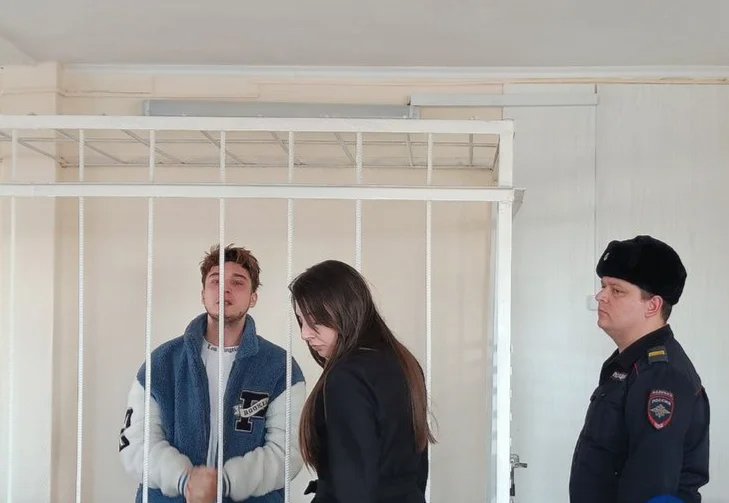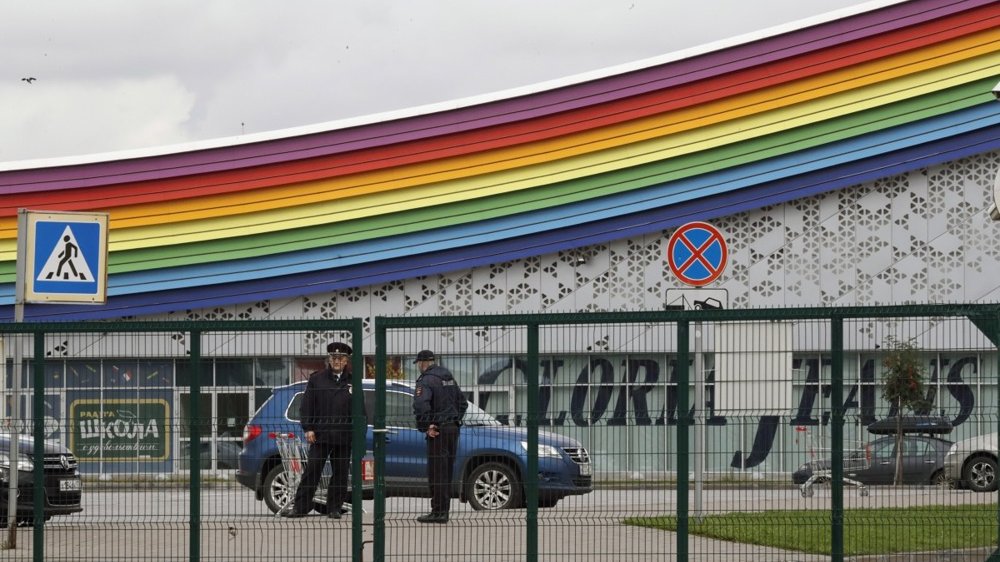Just over three decades since Russia decriminalised homosexuality in 1993, three people have been arrested and charged under the country’s harsh new anti-LGBT laws and could face 10 years in prison for their membership of an “extremist organisation”.

Sergey Katsuba
PhD Candidate in Law, University College Dublin
The arrests are a clear indication of how Russia has come full circle on its persecution of sexual minorities under Vladimir Putin.
On March 21, a court in Orenburg in southwestern Russia ordered the arrest of nightclub owner Vyacheslav Khasanov. The nightclub he owns, Pose, had never explicitly called itself a gay club, styling itself instead a “parody theatre bar” and hosting parties with drag queens and go-go dancers as entertainment.
In a press release announcing the arrest, the court said that as the owner of the club, Khasanov organised participation in an extremist organisation, and by publishing photos and videos of performances held at the club, had promoted “non-traditional sexual relationships and preferences”. Khasanov was arrested at the airport when trying to flee the country.

Alexander Klimov and Diana Kamelyanova in court. Photo: Ural56.ru
His arrest followed the arrest and detention of two of his employees, the club’s artistic director, Alexander Klimov, and its manager Diana Kamelyanova, were arrested and placed in pretrial detention for two months for “promoting non-traditional sexual relations among the visitors to the bar”.
These three people are the first victims of the new repressive legal norm. At the end of November, the Russian Supreme Court ruled that the “international LGBT movement” was an “extremist organisation”. That decision effectively criminalised homosexuality, 30 years after it was decriminalised in 1993.
Only now it isn’t sexual activity that is outlawed, it’s the identity itself.
If you openly identify as queer in Russia, you are now part of an extremist organisation and can be subject to prosecution.
This has been a long time coming. In 2013 Russia enacted the so-called “gay propaganda law”. Ostensibly aimed at protecting minors from information promoting non-traditional sexual relationships, the law effectively worked as a blanket censorship tool, preventing any positive or even neutral portrayal of homosexuality.
The law was problematic from the very beginning, with ambiguous and unclear wording. That resulted in arbitrary and selective implementation by the authorities. In one case, people were fined for holding a banner with the words: “Children have the right to know. Great people are also sometimes gay. Gay people also become great. Homosexuality is natural and normal.” Sharing LGBT-related information on social media or posting photos of people of same-sex kissing were also deemed to be LGBT propaganda and subject to legal sanction.
In 2022 the law was expanded from being something to protect children to a blanket restriction on “gay propaganda”. After this, the rhetoric shifted and it became popular for politicians to talk in terms of a “rainbow threat” or LGBT activity as part of a “hybrid war” being waged by the West against Russia.
The 2022 law opened the floodgates for a spike in prosecutions. Some of the first victims of the newly amended “gay propaganda law” were seven trans women from Central Asia. The women, who were sex workers, were fined and then deported in March 2023 under the law after they published their profiles on a dating website.
Russia subsequently passed legislation imposing a blanket ban on “sex change” procedures, as well as changing genders on official documents and an array of other measures widely criticised as transphobic.
At around the same time, six different online streaming platforms were penalised for airing movies with LGBTQ-related scenes. Most of those movies were not, in fact, queer-themed at all, and included Bridget Jones: The Edge of Reason, Perfect Strangers and Green Book. But they were judged to include scenes that could be interpreted as “gay propaganda”.
As you would expect, this precedent has had a chilling effect and increased self-censorship in the media.
When Russian cinemas screened Barbie last year, a scene featuring one man kissing another on the cheek was blurred.
Another television channel erased a rainbow from the music video of a K-pop band, making it grey. This feels apt — the grey rainbow could become symbolic of modern Russia.
This relentless crackdown highlights the extent of state repression faced by the LGBT community in Russia. The “gay propaganda law” with its random enforcement led to a climate of fear and persecution. The Supreme Court’s decision to label the international LGBT movement “extremist” has effectively re-criminalised homosexuality.
This article was first published by The Conversation. Views expressed in opinion pieces do not necessarily reflect the position of Novaya Gazeta Europe.
Join us in rebuilding Novaya Gazeta Europe
The Russian government has banned independent media. We were forced to leave our country in order to keep doing our job, telling our readers about what is going on Russia, Ukraine and Europe.
We will continue fighting against warfare and dictatorship. We believe that freedom of speech is the most efficient antidote against tyranny. Support us financially to help us fight for peace and freedom.
By clicking the Support button, you agree to the processing of your personal data.
To cancel a regular donation, please write to [email protected]

